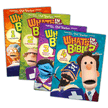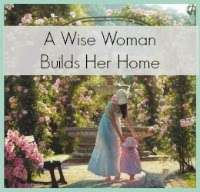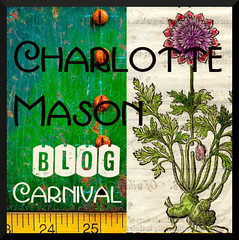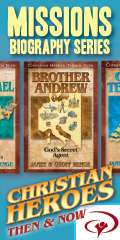How do we make the Bible seem real and relevant to our children?

Treat the Bible like a history book and make it your main course of study. Put it first. Make it such a priority that if you don’t do anything else for school that day, you will be sure to study the Bible. And make sure your children know how much of a priority it is.
Lay a foundation of Old Testament (Torah) study. Then when that foundation is firmly in place, dive into the New Testament. For my children, that has meant that we have studied the Old Testament for about 10 years. We are just now starting a systematic study of the New Testament.
Over the years, we have studied Genesis very thoroughly. The Lord kept taking me back to it, over and over again. We read Genesis: Finding our Roots by Ruth Beechick.
We read stories by Gene Edwards that go into great detail about the Creation and the Exodus and then the rest of the Bible. These were The Chronicles of the Door, which my friend, Lydia, let me borrow. I used Heart of Wisdom to develop study techniques using Bible handbooks, maps and timelines to bring more life and fuller understanding to our studies. Through HOW’s Adam to Messiah, I learned to consult Bible dictionaries and encyclopedias, especially the Victor Journey Through the Bible
to flesh out the details of Bible stories. I also used Diana Waring’s materials to add some archaeology and other science books to fill out our studies. She gives lots of ideas for supplemental books that help with Creation Science and research about early civilizations.
We read through the whole Bible last year, but we didn’t have time to study it. We just read the assigned pages each day in The Narrated Bible, which took a long time each day. Of course, some discussion happened, but not like it would when you read a few verses or just one chapter.
By reading through the Chronological, Narrated Bible (the Daily Bible) we got to see how the whole Bible fits together. It seemed like a seamless story instead of unrelated chopped up stories the way it can seem if you skip around and study one thing, then another, out of order. It was very helpful to me, too.
No Sunday School lessons that make the Bible stories seem like fables or fairy tales
When we talk about the Bible with our children, we need to convey to them our belief in the truth of the Bible and our reverence for it. Our dependence on it for guidance from the Lord should come through as we live our daily lives with our children.
Bible videos have been good tools to help my kids learn the basics of the Old Testament stories. They have learned a lot from Superbook and Veggie Tales. We can use those as springboards for further discussion. That’s what makes the stories come to life and validates them as more than just fables. If we as parents speak about them as real events and real people, then our children know that the Bible is true and important and real. If they see us patterning our lives after what the Bible says, then they know that it’s something that they should take seriously. If they only hear about these stories in Sunday School and then never hear about them again, the Bible will seem separate and detached from real life. And they won’t value them or think about them on a deeper level. They will discount them as Sunday School material. It will have no impact on their lives.
I went to Sunday School once a week when I was a child. Then I spent five days a week in “real school” that seemed far more important to everybody. I got the impression that what I learned in school was important. I was graded on it and tested on it, and people acted like it was vital that I work really hard in school to learn all I could. But I never felt like it mattered much to other people if I learned what the Bible taught. And much of the information I learned at school contradicted what the Bible teaches. It certainly didn’t reinforce my Bible learning!
I did learn a lot about the Bible, because I had some Sunday School teachers along the way who motivated me with prizes to memorize verses and to learn how to find my way around the Bible. There were a few who really seemed to take it seriously. But nobody took it as seriously as “school”.
As your children get older, go into more depth about the meaning and the lessons we can learn from the stories and teachings of the Old Testament. Apply the lessons to daily life. For example, when your child acts jealous of a sibling, remind him of how Cain killed Abel and how Joseph’s brothers treated him. People often do really bad things out of jealousy. We need to guard our hearts against jealousy. That’s a good lesson to learn early on.
These stories should be treated like history.
The stories of the Bible should be seen as lessons for us in how God interacts with people and what that means for us.
Make the Bible seem real and relevant. Read some fiction based on Bible stories to help them fill in details behind the action and the possible emotions experienced by the characters. But make sure that the author truly believes that the Bible is God’s word and respects it as such. I read Adam and His Kin by Ruth Beechick to the oldest two of my children. I read The Chronicles of the Door by Gene Edwards several years ago. My oldest son really soaked it all in. All along the way, I have been finding novels that flesh out the Old Testament stories. I have found them at the library mostly. I read the trilogy called The Genesis Trilogy starting with The Heavens Before
by Kacy Barnett-Gramckow to the oldest four kids. They got to know Noah and his sons and got a feel for what the world might have been like right before the Flood and right after the Flood. I read a novel about Abraham that I got from the library about two years ago to all six of my oldest kids. I always stress that these are just novels and that the author has tried to imagine what it would have been like. I try to point out what is actually taken straight from the Bible and what is conjecture.
These products help kids learn to apply what the Bible teaches:
What’s in the Bible videos by Phil Vischer
 |
McGee and Me by Focus on the Family
Other Focus on the Family materials – Adventures in Odyssey – we listened together.
Bible story books for children as they enjoy them. If I see any sign of boredom or distaste, I put them aside, and may try them again later.
I am reading The Ark, the Reed and the Fire Cloud by Jenny L. Cote to the 7 year old twins right now. They are enjoying it. They sometimes ask for it. It is from a series she wrote called The Amazing Tales of Max and Liz.
It’s about Noah’s Ark written from the animals’ perspective. It’s very good. It’s long, so it’s taking us a long time to read it. It has over 400 pages.
I didn’t come up with the plan to teach the Old Testament first and lay the foundation for the New Testament. It is the way the Lord has led me. As I look back and see what we’ve done, I realize that this has been His plan.
Along the way, he has provided and led me to lots of helpful resources. Here are some of them:
More Recommended Resources:
Donut Man videos
Missionary biographies – I especially like Christian Heroes Then and Now by Janet and Geoff Benge. Trailblazer Books by Dave and Neta Jackson are good, too.
Superbook has re-done their video series for this generation. It’s very good!
Torchlighters has some good videos. We have the stories of Jim Elliot and Perpetua. I plan to get more of these in the future!
This post was included in the Women Living Well Wednesdays Link-up.









 "Oh that God would give every mother a vision of the glory and splendor of the work that is given to her when a babe is placed in her bosom to be nursed and trained! Could she have but one glimpse in to the future of that life as it reaches on into eternity; could she look into its soul to see its possibilities; could she be made to understand her own personal responsibility for the training of this child, for the development of its life, and for its destiny,--she would see that in all God's world there is no other work so noble and so worthy of her best powers, and she would commit to no other's hands the sacred and holy trust given to her." -JR Miller
"Oh that God would give every mother a vision of the glory and splendor of the work that is given to her when a babe is placed in her bosom to be nursed and trained! Could she have but one glimpse in to the future of that life as it reaches on into eternity; could she look into its soul to see its possibilities; could she be made to understand her own personal responsibility for the training of this child, for the development of its life, and for its destiny,--she would see that in all God's world there is no other work so noble and so worthy of her best powers, and she would commit to no other's hands the sacred and holy trust given to her." -JR Miller







thanks you for posting this wonderful site and I love the picture of the Holy Bible over black and blue cloud. and again thanks for taking us back to the beginning of the Word in Genesis..it began there for us to get our roots for sure..blessings in Jesus.